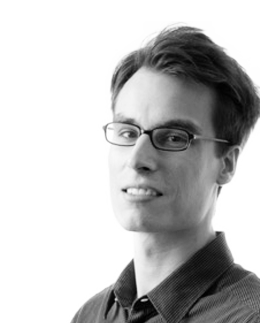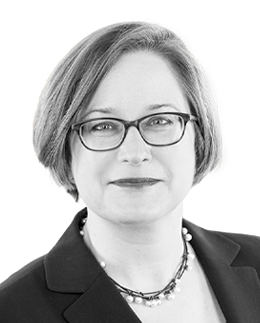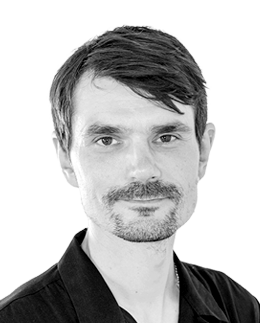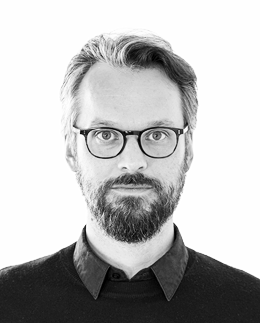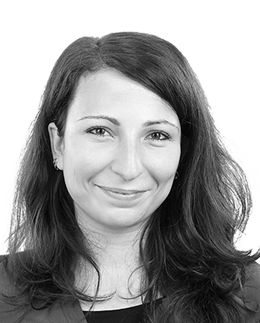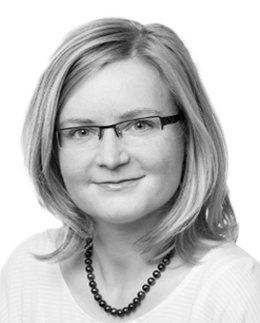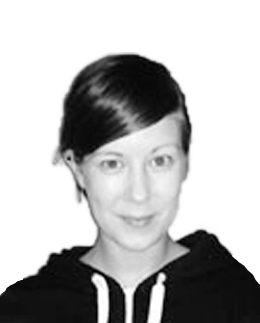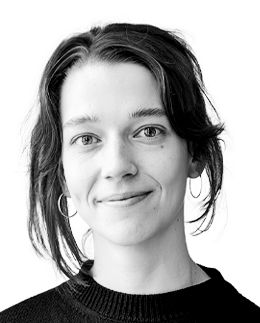
Gregor Fabian
Research Area Research System and Science Dynamics
Researcher
- +49 511 450670-133
- +49 30 2064177-99
List of projects
List of publications
Die Forschungs- und Arbeitsbedingungen internationaler Wissenschaftler:innen an deutschen Hochschulen.Fabian, G., & Heger, C. (2024).Die Forschungs- und Arbeitsbedingungen internationaler Wissenschaftler:innen an deutschen Hochschulen. In DAAD/DZHW (Hrsg.), Wissenschaft weltoffen. Daten und Fakten zur Internationalität von Studium und Forschung in Deutschland und weltweit. (S. 82-85). Bielefeld: wbv. |
The research and working conditions of international scientists at German universities.Fabian, G., & Heger, C. (2024).The research and working conditions of international scientists at German universities. In DAAD/DZHW (Hrsg.), Wissenschaft weltoffen 2024. Facts and Figures on the International Nature of Studies and Research in Germany and Worldwide. (S. 82-85). Bielefeld: wbv. |
DZHW-Wissenschaftsbefragung 2023. Daten- und Methodenbericht zur DZHW-Wissenschaftsbefragung 2023.Fabian, G., Heger, C., Just, A., & Weber, A. (2024).DZHW-Wissenschaftsbefragung 2023. Daten- und Methodenbericht zur DZHW-Wissenschaftsbefragung 2023. Hannover: DZHW. https://doi.org/10.21249/DZHW:scs2023-dmr:1.0.0 Abstract
The DZHW Scientists Survey 2023 is an online survey of full-time academic and artistic staff at German universities and equivalent institutions of higher education with the right to award doctorates. It is repeated at regular intervals as a trend study to explore the working and research conditions at German universities and equivalent institutions of higher education. The DZHW Scientists Survey 2023 was conducted from January to March 2023. The respondents therefore take a retrospective look at their working and research conditions during the Covid-19 pandemic and their current post-pandemic situation. The previous Scientists Surveys took place in 2010, 2016 and 2019/2020. [...] Full Abstract: https://doi.org/10.21249/DZHW:scs2023:1.0.0 |
How accurate are Scopus publication counts of researchers? A survey-bibliometric comparison for Germany.Fenton, A., Donner, P., Ambrasat, J., Fabian, G., & Heger, C. (2024).How accurate are Scopus publication counts of researchers? A survey-bibliometric comparison for Germany. In STI2024 (Hrsg.), Proceedings of the 28th International Conference on Science, Technology and Innovation Indicators (STI2024). Berlin: STI2024. Abstract
The number of researchers' publications is a widely used proxy measure for scientific output, individual achievement, and performance. Despite well-known criticism from the bibliometric community, the use of bibliometric databases as a basis for measuring publication output is widespread. At the same time, there are established survey instruments that also measure the publication output per researcher. We use survey-bibliometric matching with Scopus publication records to compare the alternative publication counts. A Scopus author ID match could be found for 70 % of the respondent researchers. The number of publications per researcher varies greatly between these data sources. [...] |
Akademische Redefreiheit.Fabian, G., Fischer, M., Hamann, J., Schimank, U., Thompson, C., Traunmüller, R., & Villa, P.-I. (2024).Akademische Redefreiheit. - Kurzbericht zu einer empirischen Studie an deutschen Hochschulen. Hamburg: ZEIT-Stiftung. https://doi.org/10.31235/osf.io/mycjs |
Barometer für die Wissenschaft. Ergebnisse der Wissenschaftsbefragung 2023.Fabian, G., Heger, C., & Fedzin, M. (2024).Barometer für die Wissenschaft. Ergebnisse der Wissenschaftsbefragung 2023. Berlin: DZHW. https://doi.org/10.31235/osf.io/ea5kr Abstract
The Scientists Survey was initiated in 2010. It is intended as a long-term barometer for science. Because the 2023 edition was the fourth wave, many topics, such as attitudes and opinions on science policy for example, can be examined over time in trends analyses. Additionally, the timing of the surveys waves has enabled a particular set of research questions: while the current cohort was surveyed directly at the end of the pandemic, the preceding wave took place directly before the start of the first extensive restrictions due to the COVID-19 pandemic. This "historical coincidence" gives insights into the way researchers worked in the time before, during and after the pandemic. |
Who Benefits from Job Security? Job Satisfaction and Performance in Academia.Ambrasat, J., & Fabian, G. (2023).Who Benefits from Job Security? Job Satisfaction and Performance in Academia. SocArXiv. https://doi.org/10.31235/osf.io/7j2pt (Abgerufen am: 20.12.2023). https://doi.org/10.31235/osf.io/7j2pt |
One year after the outbreak – Involvement of scientists in the Covid-19 pandemic Findings from a Germany-wide study.Ambrasat, J., & Fabian, G. (2021).One year after the outbreak – Involvement of scientists in the Covid-19 pandemic Findings from a Germany-wide study. SocArXiv. https://doi.org/10.31235/osf.io/56r3u |
KWReq — a new instrument for measuring knowledge work requirements of higher education graduates.Trommer, M., Schaeper, H., & Fabian, G. (2021).KWReq — a new instrument for measuring knowledge work requirements of higher education graduates. Journal for Labour Market Research, 55(20), 1-24 (online first). https://doi.org/10.1186/s12651-021-00303-2 Abstract
Starting from the observation that questionnaires for appropriately measuring the changing working conditions and requirements of the highly qualified workforce do not exist, we developed a new German-language instrument focussing on knowledge work. Based on theoretical considerations, we first identified three basic dimensions that constitute knowledge work: novelty, complexity, and autonomy. During the subsequent process of questionnaire development with higher education graduates, including a cognitive pretest, a quantitative development study, and a replication study, these dimensions were operationalised by initially 173 and finally 22 items. |
Wissenschaftskommunikation in Deutschland - Ergebnisse einer Befragung unter Wissenschaftler*innen.Ziegler, R., Fischer, L., Ambrasat, J., Fabian, G., Niemann, P., & Buz, C. (2021).Wissenschaftskommunikation in Deutschland - Ergebnisse einer Befragung unter Wissenschaftler*innen. Berlin/Karlsruhe: DZHW, WiD, NaWik. |
Effekte der Differenzierung des Hochschulsystems für die beruflichen Erträge eines Bachelorstudiums.Fabian, G. (2021).Effekte der Differenzierung des Hochschulsystems für die beruflichen Erträge eines Bachelorstudiums. In G. Fabian, C. Flöther, & D. Reifenberg (Hrsg.), Generation Hochschulabschluss: neue und alte Differenzierungen. Ergebnisse des Absolventenpanels 2017. (S. 141-152). Münster/New York: Waxmann. https://doi.org/10.31244/9783830993919 |
Aufnahme eines Masterstudiums nach dem Bachelorabschluss.Fabian, G. (2021).Aufnahme eines Masterstudiums nach dem Bachelorabschluss. In G. Fabian, C. Flöther, & D. Reifenberg (Hrsg.), Generation Hochschulabschluss: neue und alte Differenzierungen. Ergebnisse des Absolventenpanels 2017. (S. 97-110). Münster/New York: Waxmann. https://doi.org/10.31244/9783830993919 |
Die berufliche Situation der Hochschulabsolvent*innen im Überblick.Fabian, G., & Flöther, C. (2021).Die berufliche Situation der Hochschulabsolvent*innen im Überblick. In G. Fabian, C. Flöther, & D. Reifenberg (Hrsg.), Generation Hochschulabschluss: neue und alte Differenzierungen. Ergebnisse des Absolventenpanels 2017 (S. 137-140). Münster/New York: Waxmann. https://doi.org/10.31244/9783830993919 |
Heterogene Absolvent*innen, differenzierte Studienangebote und verschiedene Berufswege. Alles neu? Eine Einleitung zum Absolventenpanel 2017.Fabian, G., Flöther, C., & Reifenberg, D. (2021).Heterogene Absolvent*innen, differenzierte Studienangebote und verschiedene Berufswege. Alles neu? Eine Einleitung zum Absolventenpanel 2017. In G. Fabian, C. Flöther, & D. Reifenberg (Hrsg.), Generation Hochschulabschluss: neue und alte Differenzierungen. Ergebnisse des Absolventenpanels 2017. (S. 13-30). Münster/New York: Waxmann. https://doi.org/10.31244/9783830993919 |
List of presentations & conferences
How accurate are Scopus publication counts of researchers? A survey-bibliometric comparison for Germany.Fenton, A., Donner, P., Ambrasat, J., Fabian, G., & Heger, C. (2024, September).How accurate are Scopus publication counts of researchers? A survey-bibliometric comparison for Germany. Vortrag auf der Konferenz 28th International Conference on Science, Technology and Innovation Indicators 2024 (STI), Berlin. Abstract
The number of researchers' publications is a widely used proxy measure for scientific output, individual achievement, and performance. Despite well-known criticism from the bibliometric community, the use of bibliometric databases as a basis for measuring publication output is widespread. At the same time, there are established survey instruments that also measure the publication output per researcher. We use survey-bibliometric matching with Scopus publication records to compare the alternative publication counts. A Scopus author ID match could be found for 70 % of the respondent researchers. The number of publications per researcher varies greatly between these data sources. [...] |
Who Benefits from Job Security? Job Satisfaction and Performance in Academia.Ambrasat, J., & Fabian, G. (2024, August).Who Benefits from Job Security? Job Satisfaction and Performance in Academia. Vortrag auf der Konferenz "Tension, trust and transformation"- 16th European Sociological Association Conference, European Sociological Association, Porto, Portugal. |
Making the invisible differences visible.Hartstein, J., Tcypina, A., & Fabian, G. (2023, Oktober).Making the invisible differences visible. Vortrag auf der Konferenz The Future of Higher Education and Science, Leibniz Center for Social Sciences, Leibniz-Universität Hannover & Deutsches Zentrum für Hochschul- und Wissenschaftsforschung (DZHW), Hannover. |
Arbeitszufriedenheit und Arbeitsergebnisse von PostDocs. Befunde aus der Wissenschaftsbefragung (WiBef) des DZHW.Heger, C., & Fabian, G. (2022, Oktober).Arbeitszufriedenheit und Arbeitsergebnisse von PostDocs. Befunde aus der Wissenschaftsbefragung (WiBef) des DZHW. Vortrag auf der Hausmesse Beschäftigungssituation in der Wissenschaft, DZHW, Hannover. |
Wer profitiert von sicheren Beschäftigungen? Jobzufriedenheit und Performanz in der Wissenschaft.Fabian, G., & Ambrasat, J. (2022, September).Wer profitiert von sicheren Beschäftigungen? Jobzufriedenheit und Performanz in der Wissenschaft. Vortrag auf dem Kongress der Deutschen Gesellschaft für Soziologie (41), Universität Bielefeld, Bielefeld. |
Die Wissenschaftsbefragung als zentrales Instrument der Abteilung Forschungssystem und Wissenschaftsdynamik des DZHW.Fabian, G., & Blümel, C. (2022, Juni).Die Wissenschaftsbefragung als zentrales Instrument der Abteilung Forschungssystem und Wissenschaftsdynamik des DZHW. Vortrag im Rahmen der Referatsrunde des Referats 415 des BMBF, Bundesministerium für Bildung und Forschung,, Online-Veranstaltung. |
Changing Academic Careers II Lecture Series.
Workshop Changing Academic Careers II Lecture Series, DZHW, Universität Würzburg, LCSS, Universität Hannover, Hannover (online). |
Vertical and Horizontal (Mis)match Among Highly Qualified - Measurement Issues, Determinants and Consequences.
Vertical and Horizontal (Mis)match Among Highly Qualified - Measurement Issues, Determinants and Consequences, DZHW Research Cluster "Returns to Tertiary Education", DZHW Hannover. |




